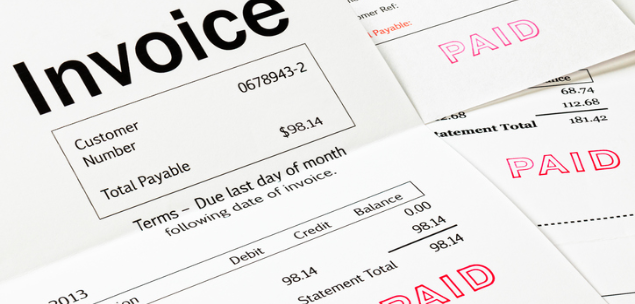
Be it a small or big enterprise, maintaining a good financial status is necessary for better growth and maximum ROI.
However, it can be pretty tough for you if you have a startup that is in its growing phase. Balancing both the business as well as its finances is not everyone’s cup of tea.
If you’ve decided to take care of your finances yourself, take note of the following financial hacks to monitor cash flow for startups and small businesses.
Top 7 Financial Hacks To Help Your Small Business
We have listed out all the significant things that can benefit you in the long term. Thus, if you follow even a few of these tips, there are chances for your small business to perform better in financial terms.
So, without any further ado, let’s take a sneak peek into the hacks.
1. Avoid Early Bill Payment
One of the best financial hacks to keep that cash flow consistent in a small business is on-time payments. However, do not clear your dues early: the money you pay in advance could be handy during an emergency.
You might need the cash for unforeseen circumstances that may be out of your control. Thus, it is best not to pay early and hold on to it until the due date.
However, you should pay them if you get any discount for early-payments.
2. Hire An Accountant
You might have had some experience in accounts and know the ins and outs quite well, leading you to think you can be your own business accountant.
However, there is no way you can take care of your financial status as a professional accountant. It’s a juggling act that can result in major monetary alerts falling through the cracks.
The average Joe is seldom qualified enough to manage the finances of his business. While you can offer customers flexible payment options via home improvement financing companies, it might be overbearing to keep track of the cash flow all by yourself.
Hiring an accountant is an easier route to take as they will monitor your taxes and expenses and manage both efficiently. They can also throw some light on common problems and fix them for you.
3. Keep Cash Reserve Handy
If you already have some cash reserved, you can overcome massive problems in case of any blunders.
Every business recovery plan is incomplete without a rainy day fund. If you’ve narrowly escaped some financial setbacks as a small business, you’d know this all too well.
So one of the best bits of advice for small businesses is to keep some portion of the cash flow aside. With that amount, you might not face extreme losses during any unfortunate incident.
Now, the question arises, how much money should you reserve? Operating expenses of three to six months is a good estimate for starters.
4. Cut Any Unnecessary Expenses
Cutting corners should not be a goal in itself: it’s not the best tip for your business and won’t keep your employees or customers happy in the long run.
However, you’re not discarding benefits for the stakeholders of your business; you’re simply eliminating unnecessary costs to keep the money flow on track for the coming times.
One of the best ways to save excess spending is by changing your habits. Try to buy used devices and do not rush for new technology if the old one is sufficient.
Apart from that, you can advertise through other modes that do not involve excessive money input, such as social media.
5. Make Future Predictions
As a small business, a major part of getting your finances back on track involves taking a thorough look into your past sales and identifying the areas where it collapsed.
No matter what situations you have faced earlier, keeping track of these circumstances can help you make predictions for the coming time. You can gauge where your business is going to stand in the future.
Now, we are not saying that all your predictions are going to be true. Of course, there will be some challenges in the future.
But by keeping track and making predictions, you can prepare yourself for any upcoming tough situations as time passes.
6. Send Immediate Invoices To Customers
You may find on occasion that the payments are delayed, whether by a situation out of your hands or not.
In such cases, you can send immediate invoices to the customers. If you don’t send them invoices instantly, there are chances of facing more delays ahead.
Once your customers are ready to pay, make sure to give them numerous payment options via the best dental financing services.
If you rely upon the usual cheque mode of payment, it can take a lot of time for the money to get transacted. Thus, it is best to add online payment modes so that your customers can pay you easily.
7. Try Some Applications
For those small businesses that want to be responsible for their own finances, numerous applications in the market can be useful in keeping track of the money flow.
The most success you’ll ever know in terms of handling company finances on your own is via applications that can give you suggestions and ideas for a better financial status.
A quick search online can give you multiple apps that send you payment reminders and analyze your monthly expenditure – almost as if your own personal accountant lives inside your phone.
It can certainly be an effective and easy option to comprehend the money flow and is surely worth a shot!
Conclusion
If you’ve decided you need help in getting your company finances sorted, congratulations! Asking for help is the first step on the ladder to cash flow success.
Be it your business or any other area, controlling money flow is an important part of it. It seems akin to pulling a rabbit out of your hat, but on closer inspection, you’ll know it’s not that hard.
Before you begin the process of revamping your cash flow game, make sure to follow all the above tips for better business progression.







